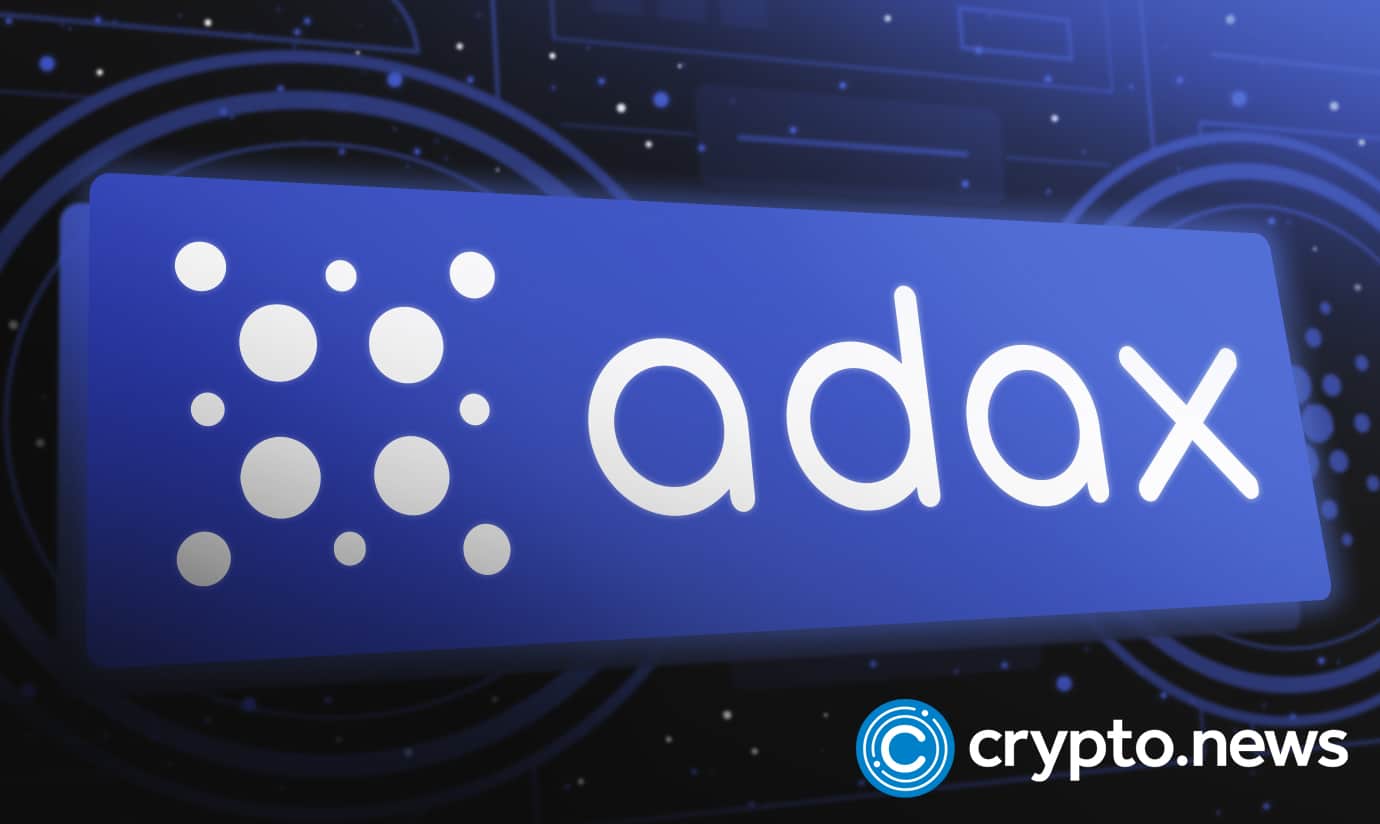ADAX Just Launched Their Concentrated Liquidity DEX on Cardano

After six months of active development, the first iteration of ADAX—a premier decentralized exchange on Cardano—is now live. The launch of ADAX v1 is a major milestone for the builders of the DEX. It follows unexpected delays and necessary refinements to deliver a top-notch ramp set to take over Cardano. In their view, their features easily make ADAX a quality, go-to decentralized exchange that offers one of the lowest fees in the rapidly expanding Cardano ecosystem.
ADAX is a non-custodial decentralized exchange using an order-book model. By utilizing smart contracts on the decentralized Cardano blockchain, all its orders are immutable and censorship-resistant. At the same time, the open nature of Cardano makes the DEX global, available for all traders and investors keen on exploring the development ecosystem.
Concentrated Liquidity for Higher Capital Efficiency
The platform forms part of the intricate infrastructure web that makes Cardano a highly potent blockchain.
However, ADAX is different from competitors and incorporates distinguishing features, placing it ahead of other platforms. For instance, ADAX is the first to introduce concentrated liquidity–a feature that’s already proving to be a game-changer in Uniswap v3. One core advantage of concentrated liquidity in an order-book-based decentralized exchange is capital and cost efficiencies.
This integration is massively beneficial for liquidity providers who can now earn more from supplying liquidity in a given price range. In this arrangement, a liquidity provider stands to make several folds more than they would ordinarily profit whenever deploying capital in alternative protocols utilizing ordinary order-book models.
ADAX to Resolve Concurrency and Congestion Problems
ADAX has indicated that all orders would be executed on Cardano–a chain making a name for its low fees. Moreover, the exchange’s creators are rolling out a unique PAB solution, leveraging Cardano’s Plutus-based smart contracts for complete decentralization. Plutus is a special programming language designed purposely for building smart contracts on Cardano in an easy-to-understand manner.
Unlike other DEXes, orders will be broken into small pieces to avoid concurrency issues and congestion. In recent days, Cardano has been inundated by transactions leading to inconveniencing delays that can stretch days. Since one of ADAX’s primary objectives is to reign in on possible congestion, the results will be a satisfying user experience from a ramp where the security of transactions is guaranteed.
Integrations and Partnerships
The ADAX platform is wireframed to make interaction as intuitive and smooth as possible. At the same time, the DEX’s creators already support the Nami Wallet—a Cardano’s response to the popular MetaMask browser wallet that’s EVM compatible. The browser wallet is equally secure and supports all native tokens launching on Cardano. In the days ahead, ADAX plans to integrate other wallets like CCVault and GeroWallet.
Also, the team has expanded their partnerships to include VyFinance–the first yield auto-harvester in Cardano with its own neural net–, Charli3–an oracle provider for Cardano smart contracts–,and World Mobile–a provider of blockchain-based telecommunication infrastructure, and Blackdragon. The DEX hopes to build one of the most active DeFi ecosystems in Cardano for a fulfilling user experience.
ADAX is launching after receiving overwhelming support from the community. Notably, its initial exchange offering (IEO) on EXMarkets was successful. It followed an oversubscribed private sale. Out of these fundraising rounds, the team received funding and technical support, inputs core in helping the team realize their goal of successfully deploying on Cardano.













